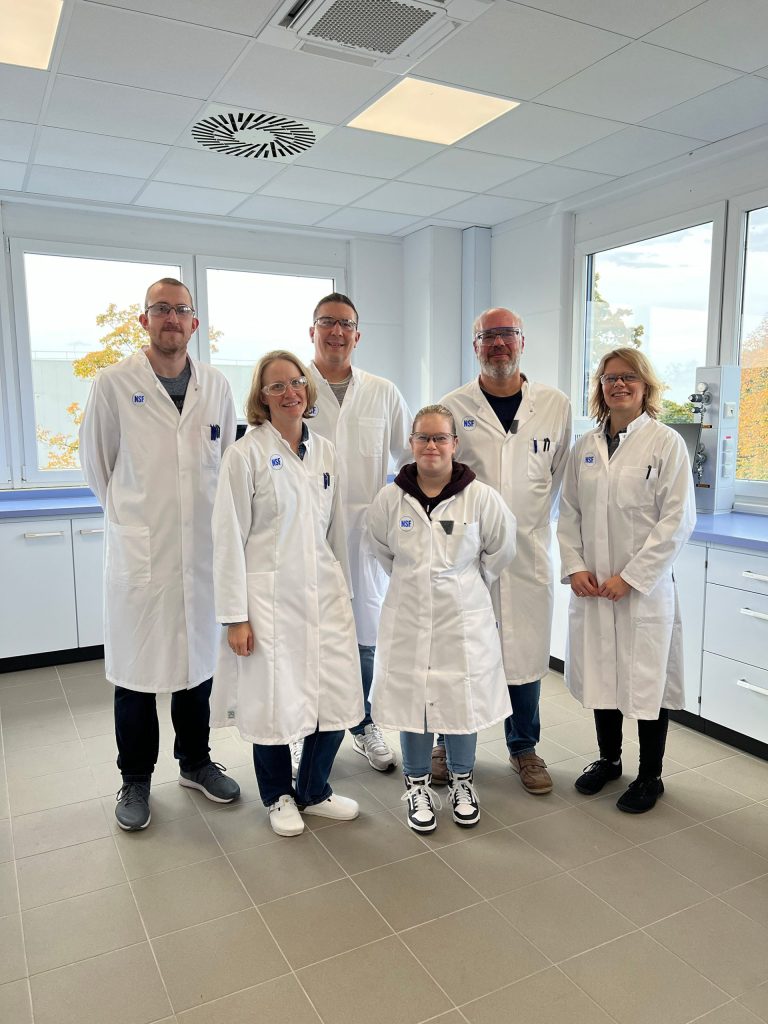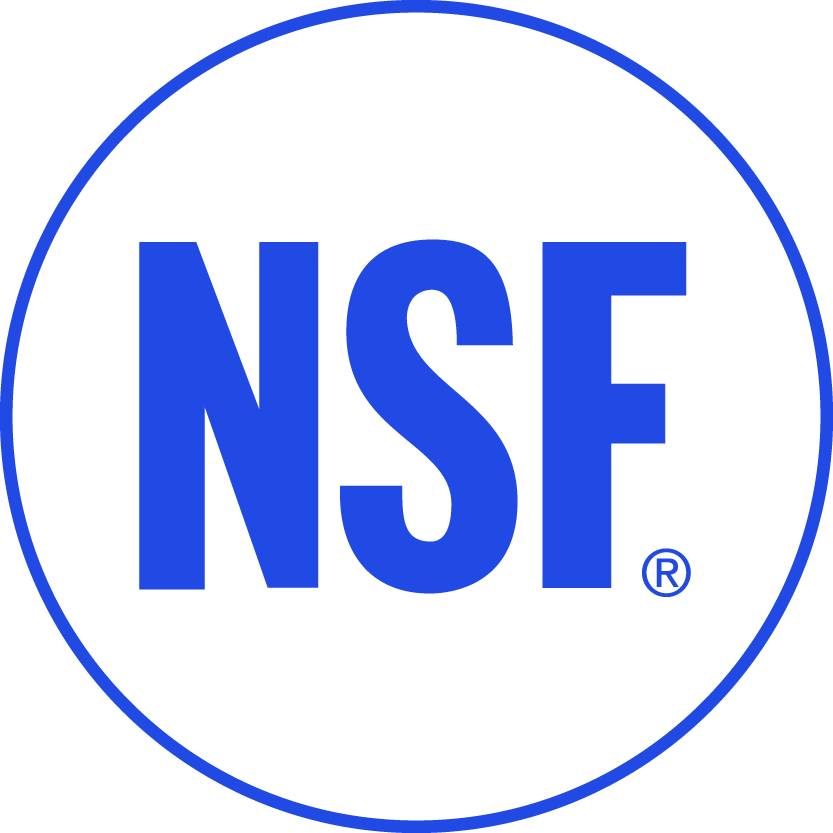NSF Opens Advanced Water Testing Laboratory in Germany
 Brussels, Belgium– NSF, a global leader in public health and safety, announces the opening of its state-of-the-art water testing laboratory in Rheda-Wiedenbrück, Germany. This facility marks NSF’s first laboratory within continental Europe, offering in-house certification testing for NSF/ANSI/CAN 60 (Drinking Water Chemicals – Health Effects) and NSF/ANSI/CAN 61 (Drinking Water System Components – Health Effects) standards.
Brussels, Belgium– NSF, a global leader in public health and safety, announces the opening of its state-of-the-art water testing laboratory in Rheda-Wiedenbrück, Germany. This facility marks NSF’s first laboratory within continental Europe, offering in-house certification testing for NSF/ANSI/CAN 60 (Drinking Water Chemicals – Health Effects) and NSF/ANSI/CAN 61 (Drinking Water System Components – Health Effects) standards.
NSF eliminates geographical barriers by providing testing capabilities for these global drinking water standards within the European Union, streamlining the path for water product manufacturers in Europe, Middle East, and Africa (EMEA) to enter the U.S. and global markets. This strategic move simplifies the certification process and opens new opportunities for companies based in this region to compete globally.
Vincent Boks, Managing Director, Water for the EMEA region at NSF, emphasised the significance of this development. «Our new German test lab is a game-changer for the European water industry,» Boks said. «With the U.S. market alone for NSF 60 and NSF 61 certified products valued at over €55 billion and continuing to grow, we’re bringing these vital testing capabilities closer to EMEA manufacturers. This facility embodies NSF’s commitment to fostering innovation, ensuring product safety and supporting the water industry’s growth across the region.»
The NSF/ANSI/CAN 60 and 61 standards are pivotal in evaluating the health effects of chemicals used in water treatment and components that come into contact with drinking water. These standards have become the benchmark for water safety and are increasingly mandated worldwide. Beyond the mandatory requirements in the USA and Canada, NSF/ANSI/CAN 60 and 61 have gained global recognition and adoption. They are referenced in national standards across the world, including China, Brazil, Mexico, South Africa, UAE and Saudi Arabia.
European manufacturers who gain NSF certification can now have their products tested locally in Germany, eliminating the need for overseas shipping and significantly reducing time-to-market. They will also benefit from more streamlined logistics, simplified sample handling and fewer transport restrictions than U.S. shipments. The new facility helps improve quality assurance by minimising the risk of sample degradation due to shorter transport times, which is particularly beneficial for sensitive products like oxidisers.
The regional facility offers local expert support, providing R&D assistance, pre-testing and guidance through the certification process in multiple European languages.
Dave Purkiss, Vice President Water, NSF added, «NSF’s new German laboratory will give European, Middle Eastern and African manufacturers more efficiency and cost-effective certification, enabling a faster time to market and quicker global product launches. The new location not only cuts down on shipping expenses but also provides invaluable access to local experts who understand both NSF standards and European regulations. This combination of faster processes, reduced costs, and expert support will result in substantial overall savings and a competitive edge for manufacturers in the water industry.»
NSF invites the water industry to explore the opportunities this new laboratory presents. The Rheda-Wiedenbrück facility is set to become a cornerstone of water product innovation and certification in the EMEA region, driving progress toward safer, more efficient water treatment and distribution systems worldwide.









